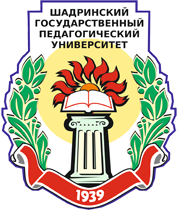Педагогические возможности студенческого самоуправления в формировании социальной зрелости бакалавра
Pedagogical possibilities of student self-governance in the formation of social maturity of the bachelor
Аннотация
В статье раскрыта степень изученности проблемы студенческого самоуправления в контексте формирования социальной зрелости бакалавра. Проведен анализ отечественных и зарубежных концепций, рассматривающих студенческое самоуправление как: институт становления и развития гражданского общества при включении студента в процессы принятия и практической реализации управленческих решений в ходе обучения в вузе (социальная концепция); ресурс воспитательной работы со студентами в образовательной организации исходя из их образовательных, профессиональных, социальных потребностей (педагогическая концепция); регулятив коллективообразования, так и его результат, а также активизатор заинтересованности бакалавра в нахождении социально приемлемых и оптимальных форм самореализации и самоутверждения (психологическая концепция). Представлено авторское определение содержания понятия «студенческое самоуправление». Методология исследования базируется на единстве деятельностного и социокультурного подходов, взаимообусловленность которых строится на принципах социальной активности, демократии и партнерства, социальной самореализации, открытости и включенности, гражданственности, культуросообразности. Обоснованы педагогические возможности (смысловые, информационные, преобразующие) студенческого самоуправления, значимые в формировании социальной зрелости бакалавра. Выделены системообразующие характеристики и охарактеризованы функции студенческого самоуправления (адаптивная, коммуникативная, стимулирующая, информационная, организаторская) как базиса формирования социальной зрелости бакалавра.
The article reveals the degree of study of the problem of student self-governance in the context of formation of social maturity of a bachelor. The analysis of domestic and foreign concepts that consider student self-governance as: an institution of formation and development of civil society with the inclusion of students in the processes of making and practical implementation of managerial decisions in the course of study in higher education (social concept); a resource of educational work with students in the educational organization based on their educational, professional, social needs (pedagogical concept); a regulator of team building, as well as its result, as well as an activator of the student's interest in the development of social maturity of bachelor's degree (pedagogical concept). The author's definition of the content of the concept of “student self-governance” is presented. The research methodology is based on the unity of the activity and sociocultural approaches, the interdependence of which is based on the principles of social activity, democracy and partnership, social self-actualization, openness and inclusion, citizenship, cultural appropriateness. Pedagogical opportunities (semantic, informational, transformative) of student self-government, significant in the formation of social maturity of a bachelor are substantiated. The system-forming characteristics and functions of student self-governance (adaptive, communicative, stimulating, informational, organizational) as a basis for the formation of bachelor's social maturity are identified.








